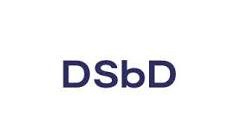- Digital Catapult onboards further 14 companies through its Technology Access Programme to experiment with groundbreaking cybersecurity technology
- This marks a further step in UKRI’s Digital Security by Design programme – a government-backed initiative to build a safer digital future
- Participants from various industries and of any size will have access to early-stage software and prototype hardware to trial and validate core capabilities and benefits in their own software and applications
Digital Catapult, the UK authority on advanced digital technology, welcomed a further 14 companies to its Digital Security by Design (DSbD) Technology Access Programme.
They will be joining the 10 companies onboarded earlier this year to experiment with prototype cybersecurity technology that, if fully implemented, could revolutionise the cybersecurity landscape for good.
The vast majority of cyber attacks exploit conventional hardware and software memory vulnerabilities. To overcome this issue, University of Cambridge researchers with colleagues at SRI International developed CHERI (Capability Hardware Enhanced RISC Instructions), a novel instruction set architecture that could stop two thirds of cyber attacks.
As part of the project, Arm designed and built a prototype system on a chip (SoC) and demonstrator board, the Arm Morello board, which was made available to UK businesses for industrial evaluation earlier in 2022. The DSbD Technology Access Programme, managed by Digital Catapult, allows companies to experiment with the Morello board.
Companies already involved in the programme so far have been able to add their own software stacks to the Morello board and catch vulnerabilities in their code, highlighting areas that need to be enhanced.
Participating companies range from large organisations serving a multitude of sectors to vibrant small and medium-sized enterprises spanning the
automotive, fintech and telecom sectors including cyber security consultancies specialising in Internet of Things (IoT), blockchain technology and cyber security. Companies will use DSbD technologies to address a wide range of security issues such as improving resilience of a Wi-Fi supplicant to over the air attack or strengthening digital security of devices permanently connected to the Internet within safety-critical systems such as vehicles.
In March 2023 select participating companies will be invited to share their use cases at a showcase event at Digital Catapult’s London office.
Prof. John Goodacre, Challenge Director, Digital Security by Design, UK Research and Innovation, said:
As we move into the second half of the Digital Security by Design programme, it’s encouraging to see the rapidly increasing interest in the Arm Morello prototype board.
The breadth of companies taking part in this programme is key to enabling this fundamental step-change in computing and provides businesses the early visibility to differentiate and deliver security-first products across industry and society.
Katy Ho, Head of Innovation Practice, Digital Catapult said:
Digital Catapult is delighted to welcome more companies through the Technology Access Programme. The ambition of the DSbD programme to enable and catalyse a paradigm shift in how secure products and services are built can only be realised through effecting change in every part of the ecosystem.
The companies experimenting with the Morello board will play a pivotal role through testing and validating the use cases and propositions of DSbD technologies and providing invaluable feedback to the ecosystem.
Participating company Oxon Tech has been involved with DSbD from inception, having evaluated the CHERI technology before the hardware release. Chris Murrey from Oxon Tech said:
In 2021 we evaluated the CHERI technology using the Fixed Virtual Platform for a project developed for the UK’s Fire and Rescue Services including embedded and mobile software. From the start it was clear this technology would go a massive way towards the security of the code we write by eliminating one of the most common vulnerabilities – memory errors.
The DSbD Technology Access Program is an exciting next step for us as it’s our first chance to get our hands on the hardware itself. This gives us a great chance to build on our first development and apply it to more real-world scenarios.

